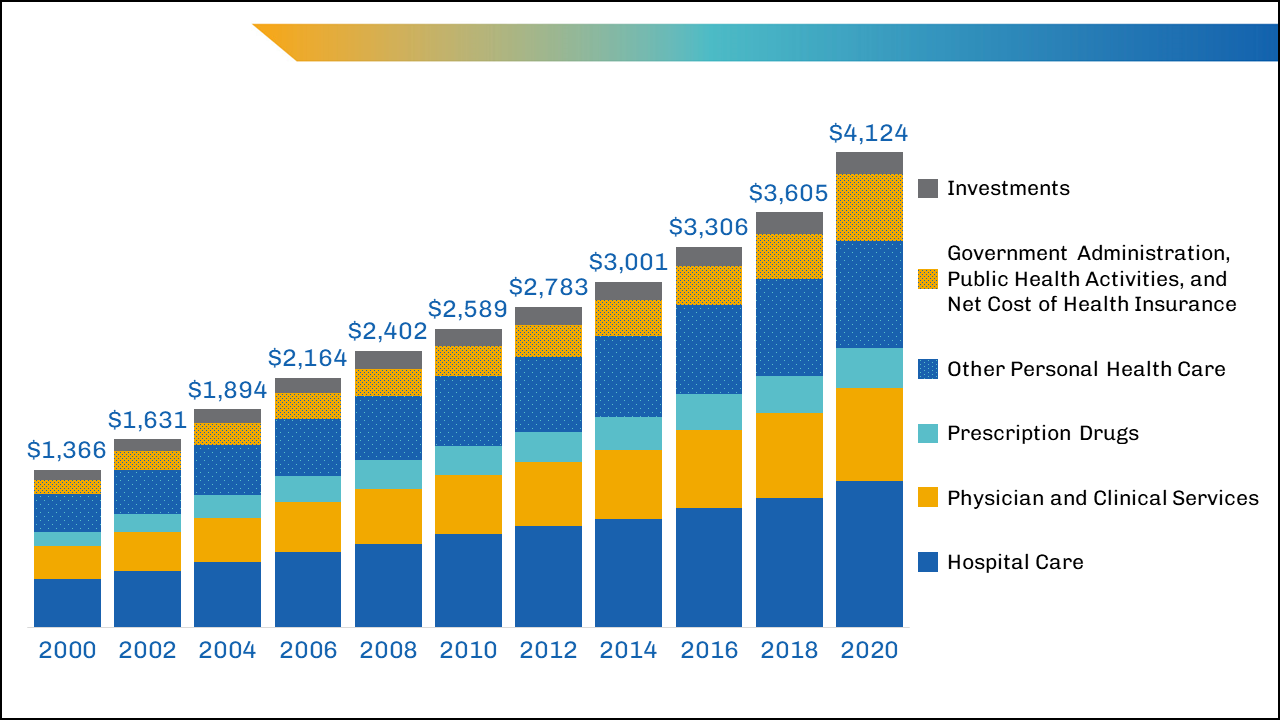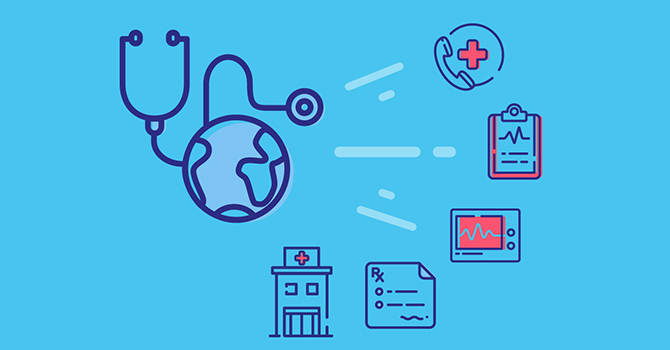The Significance of Healthcare RCM in Enhancing Capital and Efficiency
Wiki Article
Understanding the Function of Healthcare RCM in Enhancing Financial Efficiency and Person Complete Satisfaction
Navigating the details of Healthcare Revenue Cycle Management (RCM) is necessary for attaining optimal financial efficiency while simultaneously raising patient satisfaction. RCM's capability to simplify payment, ensure specific coding, and quicken cases refining stands as a keystone of modern healthcare procedures. Nonetheless, the nuanced interplay in between these components warrants a better assessment to fully value their effect on both medical care service providers and patients. As we check out the transformative potential of RCM, questions about its tactical execution and future developments bid, encouraging understandings that could redefine market criteria and person experiences alike.

Secret Parts of RCM
In the complex landscape of medical care, Revenue Cycle Management (RCM) is critical in making certain financial security and operational efficiency. Patient registration and eligibility confirmation are fundamental actions, ensuring that accurate person details is captured and insurance protection is validated prior to solutions are made.
Charge capture is another necessary element, involving the accurate recording of services supplied to clients. It ensures that all billable solutions are made up, therefore maximizing earnings potential. Simultaneously, clinical coding translates patient encounters into standardized codes, which are critical for invoicing and governing conformity.
Insurance claims submission and monitoring adhere to, involving the preparation and submission of insurance claims to payers. This procedure requires careful interest to information to minimize errors and avoid hold-ups. Denial management is a proactive method to attend to and fix rejected cases, protecting income streams.
Finally, settlement publishing and client collections finish the cycle, ensuring payments are accurately recorded and superior equilibriums are sought. Together, these components develop a robust framework that supports the functional and financial health and wellness of medical care organizations.
Effect On Financial Efficiency
Effective Earnings Cycle Administration (RCM) dramatically affects a healthcare organization's economic performance by enhancing capital and minimizing earnings leakage. RCM incorporates the thorough payment and collection processes that make sure doctor efficiently manage their financial transactions from person registration to last repayment. By enhancing these processes, companies can lessen rejected claims, expedite settlement cycles, and enhance total financial wellness.Monetary performance is boosted via thorough administration of invoicing procedures, which involves exact coding and prompt submission of insurance claims. This lowers the possibility of case denials and beings rejected, which can considerably prevent revenue circulation if not dealt with quickly. Additionally, incorporating advanced technology remedies facilitates real-time tracking of insurance claims and financial metrics, supplying healthcare managers with the tools necessary to make enlightened critical decisions.

Enhancing Client Satisfaction
While optimizing monetary efficiency is an essential objective of Profits Cycle Administration (RCM), it likewise plays a crucial duty in enhancing individual complete satisfaction. Patients today need transparency, efficiency, and accuracy in their health care interactions. RCM systems simplify these processes, offering patients a seamless experience from consultation scheduling to payment. By lowering management worries, RCM enables doctor to focus more on person treatment, which directly enhances client contentment.
RCM likewise boosts patient satisfaction through effective interaction. By preserving a detailed data source of individual info, RCM promotes boosted communication in between patients and doctor, making sure individuals really feel informed and valued. This openness and access promote a positive individual experience. Overall, effective RCM implementation not just increases monetary outcomes but also significantly adds to a patient-centered medical care atmosphere.
Methods for Reliable RCM
Achieving efficient Earnings Cycle Administration (RCM) needs healthcare companies to carry out a collection of calculated methods that ensure economic stability and functional efficiency. One vital method is the adoption of technology-driven services, such as incorporated software application systems that simplify payment procedures, reduce errors, and boost information precision. These systems enable real-time monitoring of monetary metrics, permitting for prompt identification and rectification of inefficiencies.An additional technique is the standardization of procedures throughout the revenue cycle. Healthcare RCM. This entails developing regular plans for patient enrollment, insurance coverage confirmation, and claims processing. By making sure that all staff abide by these criteria, companies can accelerate and decrease inconsistencies settlement collections
Team training and growth additionally play a critical duty in efficient RCM. Well-trained employees can efficiently browse complicated billing procedures and regulations, you could try these out boosting and minimizing denials capital. Regular updates on policy changes and finest methods help maintain a proficient and knowledgeable labor force.
Future Trends in RCM
As medical care companies improve their Profits Cycle Management (RCM) strategies with innovation and standard processes, attention is currently turning in the direction of the future fads forming this critical location. One significant fad is the assimilation of expert system (AI) and artificial intelligence to automate intricate jobs, such as insurance claims processing and predictive analytics. These technologies are expected to lower errors, increase purchase times, and supply data-driven insights for far better decision-making.
In addition, the change in the direction of value-based care remains to affect RCM practices - Healthcare RCM. Health care companies are anticipated to progressively focus on patient outcomes and complete satisfaction, necessitating RCM systems that can fit new reimbursement models. This shift will call for even more detailed information collection and analysis to efficiently report and gauge on efficiency metrics
Interoperability is an redirected here additional arising concern, as seamless data exchange in between inconsonant systems ends up being essential. Improved interoperability will help with more exact person information sharing, reducing administrative burdens and improving the client experience.
Final Thought
Healthcare Revenue Cycle Monitoring (RCM) considerably affects both monetary performance and patient fulfillment by optimizing invoicing processes, guaranteeing specific coding, and allowing prompt cases entry. Efficient RCM decreases profits leakage and increases cash circulation, reducing insurance claim denials and speeding up settlements.Navigating the details of Healthcare Revenue Cycle Management (RCM) additional reading is vital for accomplishing optimal economic efficiency while simultaneously raising client fulfillment. RCM encompasses the detailed invoicing and collection processes that make certain medical care providers efficiently handle their economic purchases from person registration to last repayment. By reducing management burdens, RCM enables healthcare carriers to concentrate a lot more on individual treatment, which directly improves patient satisfaction.
By maintaining a detailed data source of client info, RCM promotes boosted interaction in between patients and health care companies, making sure people really feel informed and valued.Medical Care Earnings Cycle Monitoring (RCM) considerably influences both monetary efficiency and patient contentment by maximizing payment processes, making certain exact coding, and making it possible for prompt insurance claims submission.
Report this wiki page